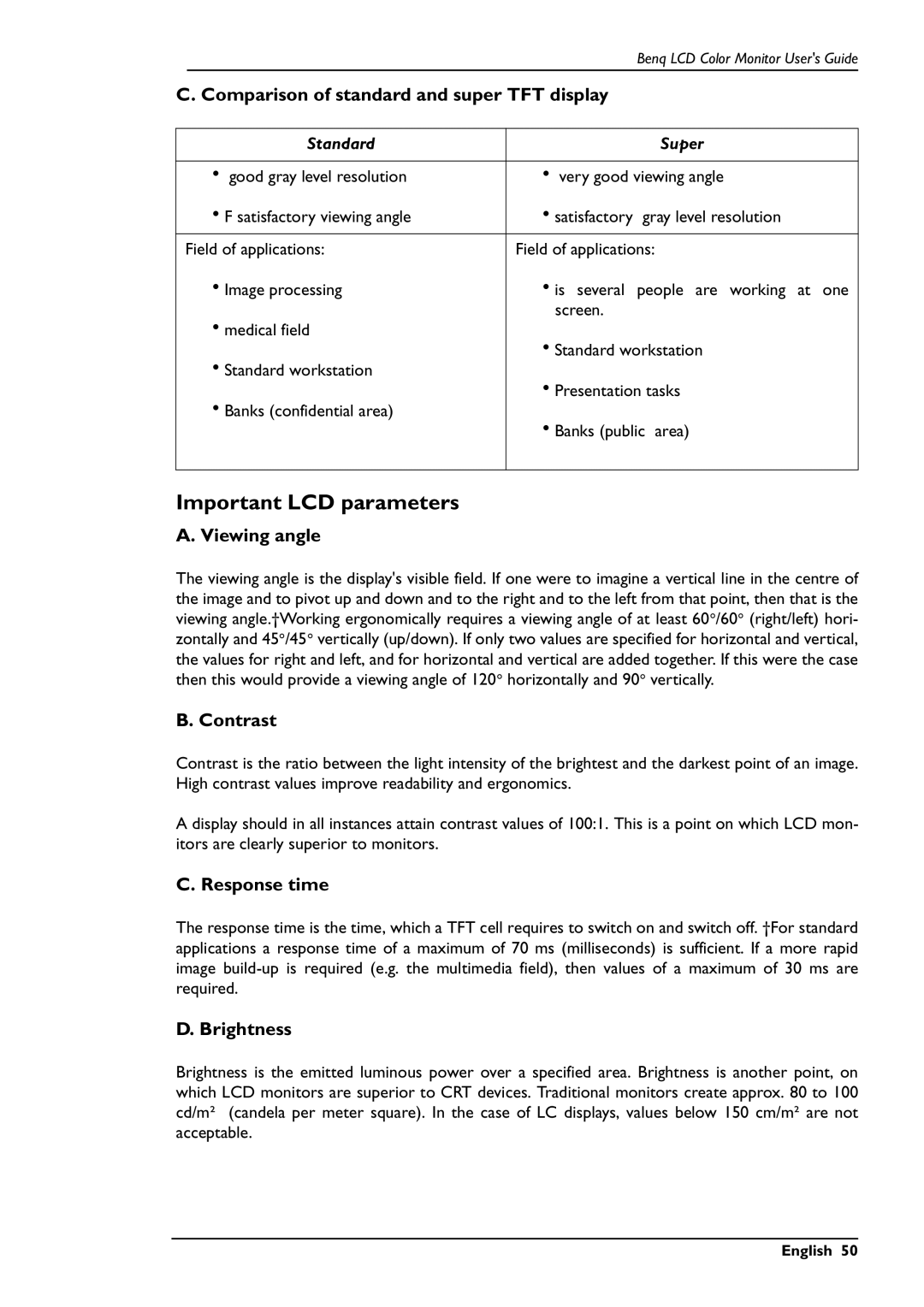
Benq LCD Color Monitor User's Guide
C. Comparison of standard and super TFT display
Standard | Super | |
|
| |
h good gray level resolution | h very good viewing angle | |
hF satisfactory viewing angle | hsatisfactory gray level resolution | |
|
| |
Field of applications: | Field of applications: | |
hImage processing | his several people are working at one | |
hmedical field | screen. | |
hStandard workstation | ||
hStandard workstation | ||
hPresentation tasks | ||
hBanks (confidential area) | ||
hBanks (public area) | ||
| ||
|
|
Important LCD parameters
A. Viewing angle
The viewing angle is the display's visible field. If one were to imagine a vertical line in the centre of the image and to pivot up and down and to the right and to the left from that point, then that is the viewing angle.†Working ergonomically requires a viewing angle of at least 60°/60° (right/left) hori- zontally and 45°/45° vertically (up/down). If only two values are specified for horizontal and vertical, the values for right and left, and for horizontal and vertical are added together. If this were the case then this would provide a viewing angle of 120° horizontally and 90° vertically.
B. Contrast
Contrast is the ratio between the light intensity of the brightest and the darkest point of an image. High contrast values improve readability and ergonomics.
A display should in all instances attain contrast values of 100:1. This is a point on which LCD mon- itors are clearly superior to monitors.
C. Response time
The response time is the time, which a TFT cell requires to switch on and switch off. †For standard applications a response time of a maximum of 70 ms (milliseconds) is sufficient. If a more rapid image
D. Brightness
Brightness is the emitted luminous power over a specified area. Brightness is another point, on which LCD monitors are superior to CRT devices. Traditional monitors create approx. 80 to 100 cd/m² (candela per meter square). In the case of LC displays, values below 150 cm/m² are not acceptable.
English 50
